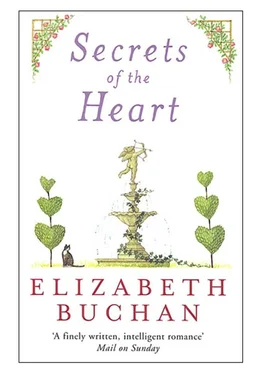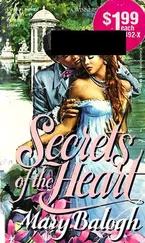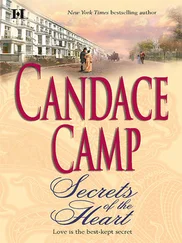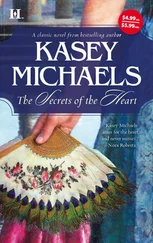Elizabeth Buchan - Secrets of the Heart
Здесь есть возможность читать онлайн «Elizabeth Buchan - Secrets of the Heart» весь текст электронной книги совершенно бесплатно (целиком полную версию без сокращений). В некоторых случаях можно слушать аудио, скачать через торрент в формате fb2 и присутствует краткое содержание. Жанр: Современные любовные романы, на английском языке. Описание произведения, (предисловие) а так же отзывы посетителей доступны на портале библиотеки ЛибКат.
- Название:Secrets of the Heart
- Автор:
- Жанр:
- Год:неизвестен
- ISBN:нет данных
- Рейтинг книги:5 / 5. Голосов: 1
-
Избранное:Добавить в избранное
- Отзывы:
-
Ваша оценка:
- 100
- 1
- 2
- 3
- 4
- 5
Secrets of the Heart: краткое содержание, описание и аннотация
Предлагаем к чтению аннотацию, описание, краткое содержание или предисловие (зависит от того, что написал сам автор книги «Secrets of the Heart»). Если вы не нашли необходимую информацию о книге — напишите в комментариях, мы постараемся отыскать её.
Secrets of the Heart — читать онлайн бесплатно полную книгу (весь текст) целиком
Ниже представлен текст книги, разбитый по страницам. Система сохранения места последней прочитанной страницы, позволяет с удобством читать онлайн бесплатно книгу «Secrets of the Heart», без необходимости каждый раз заново искать на чём Вы остановились. Поставьте закладку, и сможете в любой момент перейти на страницу, на которой закончили чтение.
Интервал:
Закладка:
Bel’s papers were being rustled meaningfully at the other end of the line. ‘What’s up?’
Bel sounded dubious, which was uncharacteristic for she was not a creature that entertained doubt. It either was or it wasn’t. A farmer called up from your neck of the woods,’ she pronounced the words as if she was discussing a disease, ‘and he thinks you would interested in a stash of letters he’s discovered in his attic from the Second World War. They were written by a farmer to his girlfriend. They’re all about his farm and their love affair. He says they’re immensely passionate and compelling. There’s about forty of them. He’s sent in two.’
‘Not our sort of thing,’ said Agnes.
‘He disagrees. Apparently he runs an organic farm, or something, and he’s being evicted by the landlord who wants to sell to a property developer and he thinks the letters might help get some publicity.’
Agnes stroked her plait. ‘Why doesn’t he go to the BBC?’
‘Apparently he read the article about your uncle’s death in the local newspaper. He was especially taken with the idea that you had inherited the house and you ran Five Star. He thought you would understand.’
Jack Dun, farmer, to his lover, Mary, who had gone away in December 1942:
After we said goodbye I walked on the moor. Everything, trees, grasses, even the stones, were white and brittle with cold. I followed the old drovers’ path past the oak copse, and I heard the branches on the trees groaning and snapping with ice. Further up, at Tolly’s Spring, I stood and surveyed my land. In winter, it is possible to piece together the clues of an ancient system. That strip there belonged to William, that one to Robin, and that one to the master. You can read the land, Mary, if you care to.
I was looking at the old laws of possession, a kind of love dug into the earth which made it bring forth. The land trusting the men who worked on it.
Yes, thought Agnes. I understand.
At dawn, Andrew Kelsey was up checking on his cattle in the pens, a twice-daily ritual in winter. He was a lean, weathered man, with a thatch of thick dark hair just beginning to go grey, dressed in a clean check shirt and corduroys. He moved slowly and methodically, running a hand over an animal here, casting a professional eye there. ‘Quiet, my beauties, quiet.’
He talked to them in this hushed moment before the day took over. To the uninitiated, each one was very like the next. To the informed eye, each was different. Andrew knew each one as an individual, as instinctively as a parent identifies his child. Always, at his approach, they stirred in their pens, and he fancied that they pressed up against him with something more than indifference. Why not? He treated them with respect and affection, and he ensured they were bedded on straw in good-sized pens.
It was so cold that the manure and straw smells were cancelled out in favour of sharp frost. Andrew fastened the final pen, stacked a couple of sacks of feed ready for the afternoon and backed up the van in the yard because he was expecting Agnes Campion.
He could feel, but not see, the lowering presence of the moor to the north of the farm. So old, so indifferent. But he liked the idea of its antiquity, older than it was possible to tally, older by far than the man-made landscape.
His fingers were aching, as they always did. Two of them on the right hand had been broken, nothing unusual in his work, but the blood no longer ran freely over the knotty calciferous joints until he flexed them. He walked towards the farmhouse. The blood flowed through his fingers, and the words in his head clustered like his cherished birds in the north field.
Soon there would be no bees left to forage in the grass, and no meadows. That was the way things were going. No tiny friction of crickets in the crops. No insects. No fungi running spores through the earth. No sighting of hares perched on chalky outcrops. No skylarks to loose their black arrows into the sky. No cowslip, burnet, toadflax and green-winged orchid.
‘Breakfast.’ Penny, his wife, had opened the kitchen window a crack, shouted through and closed it quickly against the dollop of cold air that slapped her round, unmade-up face. She sounded… not cross exactly but unsettled, a tone that was becoming habitual.
The words slithered away.
Andrew let himself in by the back door, shucked off his boots, washed his hands and padded across the kitchen in his socks. Penny was frying at the stove. As usual, her kitchen was immaculate, dishes stacked, pans shining, noticeboards displaying the weekly schedule, addresses, the bill rota and social engagements. Over by the window that looked out on to the yard and to the clump of ancient oaks beyond, which marked the boundary of the farm, was the latest pile of the women’s magazines that were Penny’s reading matter. Each month, Penny bought her favoured ones – every year more numerous – and read them, word for word, digging up from their pages the explanation to everything. And if one contained information on infertility, it was always left open for Andrew’s attention. Then his mind snapped shut and, invariably, he ignored it. Penny and Andrew were childless, and the empty space had burned into their marriage. At first they had talked about it and visited the doctors but, as their hopes dwindled, so did the occasions when he turned to her in the double bed, or she to him.
He had grown to hate the magazines, and their disinformation, especially as, in the early years when he teased Penny about them – but never too hard for he was a gentle man – she sulked.
Penny placed a fried breakfast in front of Andrew and they ate listening to the radio. Eventually, she fixed her eyes on him and asked, ‘When’s this woman coming?’
In the early days, Andrew had loved Penny’s habit of gazing at him. Loving and trusting, her eyes had seemed larger then. Nowadays, her scrutiny made him uncomfortable, as if she saw into his secrets, his conviction that the world was a greedy, unjust place.
‘She asked if she could come as early as possible because she wants to do some research in Exbury. Ten? Ten thirty? Depends on the roads.’
Penny washed up with a lot of swilling of suds. ‘I suppose this means you’ll go all arty on me.’ The implication was: and leave me out.
Andrew suppressed a sigh. Just because once he had confessed that, if he had not been a farmer, he would have liked to be some sort of writer, a poet maybe, Penny had held it against him. ‘For someone who’s so bad with words,’ she said. ‘Someone who can hardly string a sentence together. Who never talks to anyone.’ She meant that she and Andrew did not hold the long marital conversations to which she had looked forward and which she seemed to think were open and healthy. From that moment, she had chosen to interpret Andrew’s desires, as different as they could be from hers, as a criticism of her, his silences as a deep alienation from their marriage.
Lately, Andrew had begun to wonder if Penny was involved with someone else, specifically with Bob Howell, who ran a dairy farm the other side of the moor. He had no proof, only a gut feeling – a reference in a conversation, a phone call terminated when he entered the kitchen unexpectedly, Bob’s refusal to meet his eye in the pub. Strangely enough, part of him did not care if she was. Or he thought it didn’t but maybe that was something to do with the changes that threatened his life. And his marriage? If he was honest, Penny and he no longer functioned as a proper couple.
He searched in his pockets for a piece of paper on which he had jotted some notes, hauled them out and studied them.
‘What are you up to?’ asked Penny. ‘What’s going on with these letters?’ She was breathing hard.
Читать дальшеИнтервал:
Закладка:
Похожие книги на «Secrets of the Heart»
Представляем Вашему вниманию похожие книги на «Secrets of the Heart» списком для выбора. Мы отобрали схожую по названию и смыслу литературу в надежде предоставить читателям больше вариантов отыскать новые, интересные, ещё непрочитанные произведения.
Обсуждение, отзывы о книге «Secrets of the Heart» и просто собственные мнения читателей. Оставьте ваши комментарии, напишите, что Вы думаете о произведении, его смысле или главных героях. Укажите что конкретно понравилось, а что нет, и почему Вы так считаете.








